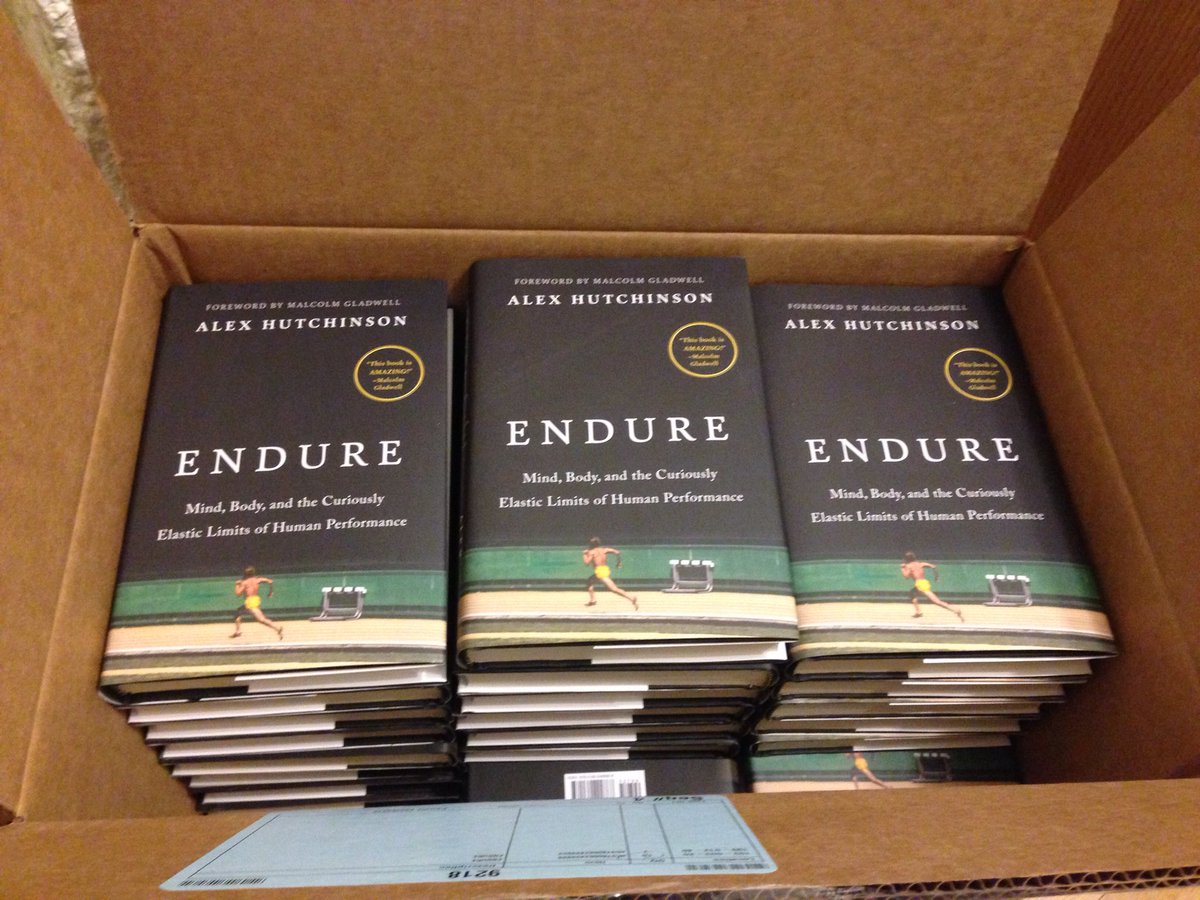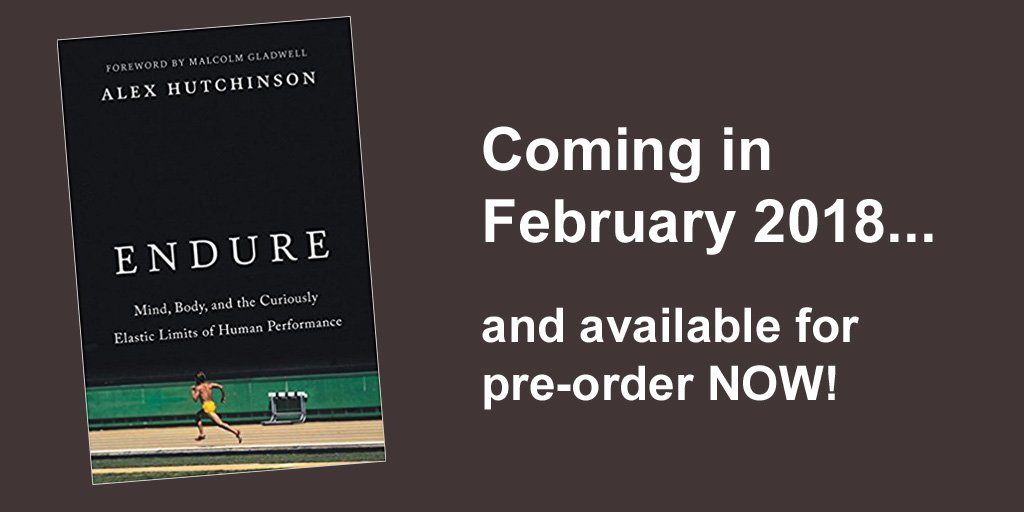
Alex Hutchinson
@sweatscience
Followers
56K
Following
14K
Media
433
Statuses
17K
Outside columnist, author of THE EXPLORER'S GENE (coming March 2025 from @marinerbooks) and ENDURE, Globe & Mail, ex-physicist, not-quite-sub-4 miler.
Toronto, Canada
Joined March 2009
Kipchoge's incredible world record, solo for a huge portion of it, felt almost like the antithesis of the Breaking2 extravaganza. But I don't think 2:01:39 would have happened without that prior 2:00:25. #BerlinMarathon.
18
109
686
With every step Kipchoge now takes, it's the fastest a human has ever run for this distance. #breaking2.
5
313
553
I take no joy in sharing this, but it's an ESSENTIAL read for anyone involved in sport. Megan Brown's story is not unique. Fantastic reporting by @mdfdoyle for @globeandmail.
29
160
470
For the same reasons I enjoy racing long distances and sticking my finger in electrical sockets, I decided to write about the latest LCHF data: @LouiseMBurke's attempt to replicate her prior findings about reduced efficiency and race performance.
20
88
425
Periodic smiling, a la @eliudkipchoge, improves your running economy, according to new research from @noelbrickie:
16
173
422
What does it take for a 59yo to run a 2:27 marathon? The ability to sustain 91% of VO2max for 26.2 miles, according to a recent @japplphysiol paper. Similar to 70yo Gene Dykes sustaining ~95%. Neat insights into VO2max and aging. (Yes, both wore Vaporfly.)
18
86
400
An emerging new theory about the "interference effect" between strength and endurance training suggests some practical ways endurance athletes can build muscle despite their mileage. Interesting insights from @musclescience:
7
151
398
Really interesting paper from @ArturoCasadoAld et al. lays out the science of the "Norwegian method" of lactate-guided double threshold days, as used by Jakob Ingebrigsten and many others these days.
17
49
404
This is a really interesting graph - not just the 800, but the monotonic trends on either side. It's like there's something that has improved "pure endurance," and something else that has improved "pure speed," but their effects somehow diminish when you mix them. Very curious.
32
44
378
The Canadian marathon record holder, @MalindiElmore, just signed a new shoe deal. In the Vaporfly era, that's a high-stakes decision--so she headed to the lab with a few pairs of shoes to do personal running economy tests. The results were surprising.
12
54
348
Review in @SportsMedicineJ estimates the least strength training you can get away with and still get fitter: 1 workout/wk, 1 set/muscle group, 6-15 reps, 30-80% max. Doesn't sound like much. but is more better for long-term health?. Details:⬇️.
20
57
349
I can't deny I've felt a little Eliud Kipchoge fatigue lately: after all these years of unbroken success, what else is there to say about him?. Answer: this piece by @Cathal_Dennehy. Some really telling anecdotes and beautiful writing. 100% worth a read.
11
47
343
At last week's @footwearbiomech symposium, Nike shared data from two internal Vaporfly studies: one varied the curve of (or removed entirely) the carbon fiber plate; the other tested the claim that runners get less muscle damage training & racing in it.
10
69
275










